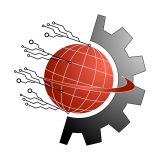In this article:
What is an Electromechanical Engineering Technology Degree?
An electromechanical engineering technology degree focuses on the study of systems that combine electrical and mechanical components. It teaches students how to design, maintain, and troubleshoot machines and equipment used in industries like manufacturing, robotics, and energy production. This program bridges the gap between electrical engineering and mechanical engineering, preparing students to work with complex, automated systems.
The coursework includes subjects like electronics, mechanics, control systems, and automation. Students learn about circuits, motors, sensors, and programmable logic controllers (PLCs), which are commonly used in modern machinery. Hands-on labs and projects give students practical experience in building and repairing electromechanical systems, helping them apply their knowledge to real-world situations.
Program Options
When considering program options for an electromechanical engineering technology degree, several factors should be taken into account, including accreditation, curriculum, delivery format, and opportunities for hands-on experience. Here are some program options to consider:
- Associate Degree in Electromechanical Engineering Technology: A two-year program that introduces students to the fundamentals of electronics, mechanics, and automation systems. It prepares graduates for entry-level positions such as electromechanical technician or maintenance specialist.
- Bachelor’s Degree in Electromechanical Engineering Technology: A four-year program providing advanced knowledge in designing, analyzing, and troubleshooting electromechanical systems. Students gain expertise in robotics, control systems, and energy-efficient technologies, qualifying them for roles such as automation engineer or systems designer.
- Diploma in Electromechanical Engineering Technology: Typically a one- to two-year program that emphasizes practical, hands-on training in operating and maintaining automated systems. It’s ideal for those looking to quickly enter the workforce as technicians or machine operators.
- Certificate in Electromechanical Systems: A short-term program, often lasting a few months to a year, that focuses on specific skills like PLC programming, motor control, or robotics. This option is suited for professionals seeking to upskill or specialize in a particular area.
Skills You’ll Learn
In an electromechanical engineering technology degree program, you will develop a diverse set of technical skills, such as:
- Electrical Circuit Analysis: You’ll learn how to analyze electrical circuits, including understanding voltage, current, resistance, and power relationships. This skill is crucial for designing and troubleshooting electrical components in electromechanical systems.
- Mechanical Design and Drafting: You’ll gain proficiency in computer-aided design (CAD) software to create detailed mechanical drawings and models. This skill is essential for designing mechanical components and assemblies in electromechanical systems.
- Control Systems: You’ll study control theory and learn how to design and implement control systems to regulate the behavior of electromechanical devices. This skill is critical for ensuring the accurate and precise operation of automated systems.
- Electrical Wiring and Troubleshooting: You’ll develop hands-on experience with electrical wiring and troubleshooting techniques. This skill is essential for installing, testing, and troubleshooting electrical systems and components in electromechanical systems.
- Mechanical Fabrication and Assembly: You’ll learn various mechanical fabrication techniques, such as machining, welding, and 3D printing, to fabricate mechanical components and assemblies. This skill is necessary for manufacturing and assembling electromechanical systems.
- Programmable Logic Controllers (PLCs): You’ll gain experience with PLC programming and interfacing to control electromechanical processes and machinery. This skill is vital for automating industrial processes in manufacturing and other industries.
- Sensors and Actuators: You’ll study different types of sensors and actuators used in electromechanical systems, such as proximity sensors, encoders, motors, and solenoids. This skill is essential for sensing and controlling physical parameters in automated systems.
- Data Acquisition and Analysis: You’ll learn how to collect, analyze, and interpret data from sensors and instruments using data acquisition systems and software tools. This skill is critical for monitoring and optimizing the performance of electromechanical systems.
- Project Management: You’ll develop project management skills, including planning, scheduling, budgeting, and resource management, to oversee electromechanical engineering projects effectively. This skill is essential for coordinating multidisciplinary teams and ensuring project success.
- Communication and Collaboration: You’ll enhance your communication and collaboration skills, working effectively in multidisciplinary teams and communicating technical concepts and solutions to colleagues, clients, and stakeholders.
What Can You Do with an Electromechanical Engineering Technology Degree?
With an electromechanical engineering technology degree, you can pursue a variety of career opportunities in industries where electrical and mechanical systems intersect. Here are some potential career paths you can explore:
- Electromechanical Engineering Technologist: As an electromechanical engineering technologist, you can work in a variety of industries, assisting engineers in designing, developing, testing, and maintaining electromechanical systems and devices. This role involves hands-on work, such as assembling prototypes, troubleshooting technical issues, and conducting tests to ensure product performance and reliability.
- Automation Technician: Automation technicians specialize in installing, maintaining, and troubleshooting automated systems and equipment used in manufacturing and industrial processes. They work with electromechanical components such as motors, sensors, actuators, and programmable logic controllers (PLCs) to optimize production processes and improve efficiency.
- Control Systems Technician: Control systems technicians focus on designing, installing, and maintaining control systems used in various applications, including robotics, HVAC systems, and industrial automation. They ensure that control systems operate reliably and efficiently by calibrating instruments, tuning controllers, and diagnosing system faults.
- Robotics Technician: Robotics technicians specialize in installing, programming, and maintaining robotic systems used in manufacturing, logistics, healthcare, and other industries. They ensure that robots operate safely and efficiently by performing regular maintenance, troubleshooting issues, and updating software as needed.
- Technical Sales Engineer: Technical sales engineers provide technical expertise and support to sales teams and customers, helping them select and configure electromechanical products and systems to meet their needs. They may also assist with product demonstrations, customer training, and post-sales support.

